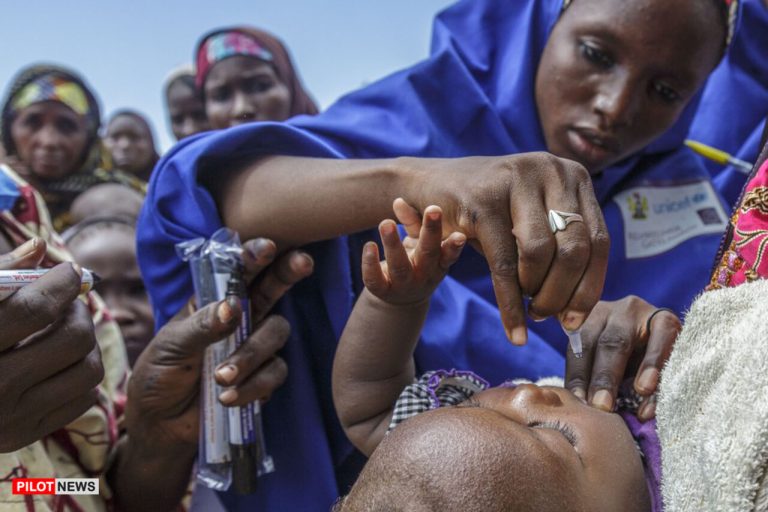When I set out to monitor the second round of the polio vaccination campaign in Sokoto South Local Government Area, I expected to witness just another routine health exercise. But what I encountered along Lokoja Road, Emir Yahaya Road, and the surrounding neighborhoods was far more stirring—a powerful mix of resilience, rejection, and hope, carried by the unsung heroes on the frontlines of public health.
My first stop was the Lokoja Road area. It was early morning, and the streets were already teeming with life—children ran barefoot through the dust, traders arranged their goods, and motorcycles zipped noisily past. Amid this everyday bustle, a group of vaccinators stood out, marked by their brightly labeled coolers, clipboards, and a quiet, unwavering determination.
They moved steadily from house to house, calling out to families, bringing out children under five, and administering two tiny drops of oral polio vaccine. Just two drops—but within them lay a potent shield against a disease that once crippled thousands of children for life.
“We’re here for the polio campaign. It’s free and safe,” said Saadatu Bashar Adamu, one of the vaccinators, as she addressed a woman behind a gate.
Most households received the team warmly. Children took their drops with curiosity and were rewarded with small treats—noodles, sweets, and smiles. But not every encounter was so simple.
At some homes, rejection met the team at the door—sometimes calmly, sometimes tensely. Despite careful explanations and patient reassurances, a few parents refused to allow their children to be vaccinated. Among them were health personnel like Auwal Bala at House No. 10 and Abubakar Galadima at House No. 14, both on Lokoja Road, who declined the vaccine for their children.
The vaccinators didn’t argue. They simply made a note on their forms and marked the houses accordingly.
“We’re required to report households that refuse,” one of them told me. “The authorities will follow up. We’re doing our part. We can’t force anyone, but we also can’t ignore the risk.”
From Lokoja Road, I moved on to Emir Yahaya Road, where another team was at work. The same tireless process unfolded—knocks on doors, patient conversations, and hopeful gestures. By mid-afternoon, the sun bore down heavily. I could see the fatigue in their steps, but they pressed on, determined to reach every child.
The campaign, running from June 14 to 17, targets children aged 0 to 59 months across 244 wards in Sokoto State. The effort aims to eradicate vaccine-derived poliovirus type 2 and prevent its return.
By the time I left the field, I had walked alongside women who were more than vaccinators. They were educators, negotiators, protectors of the future. And as I watched them move with grace and purpose, I realized that ending polio isn’t just a public health mission—it’s a deeply human one.
On the dusty roads of Sokoto South, hope moves from house to house—two drops at a time.


